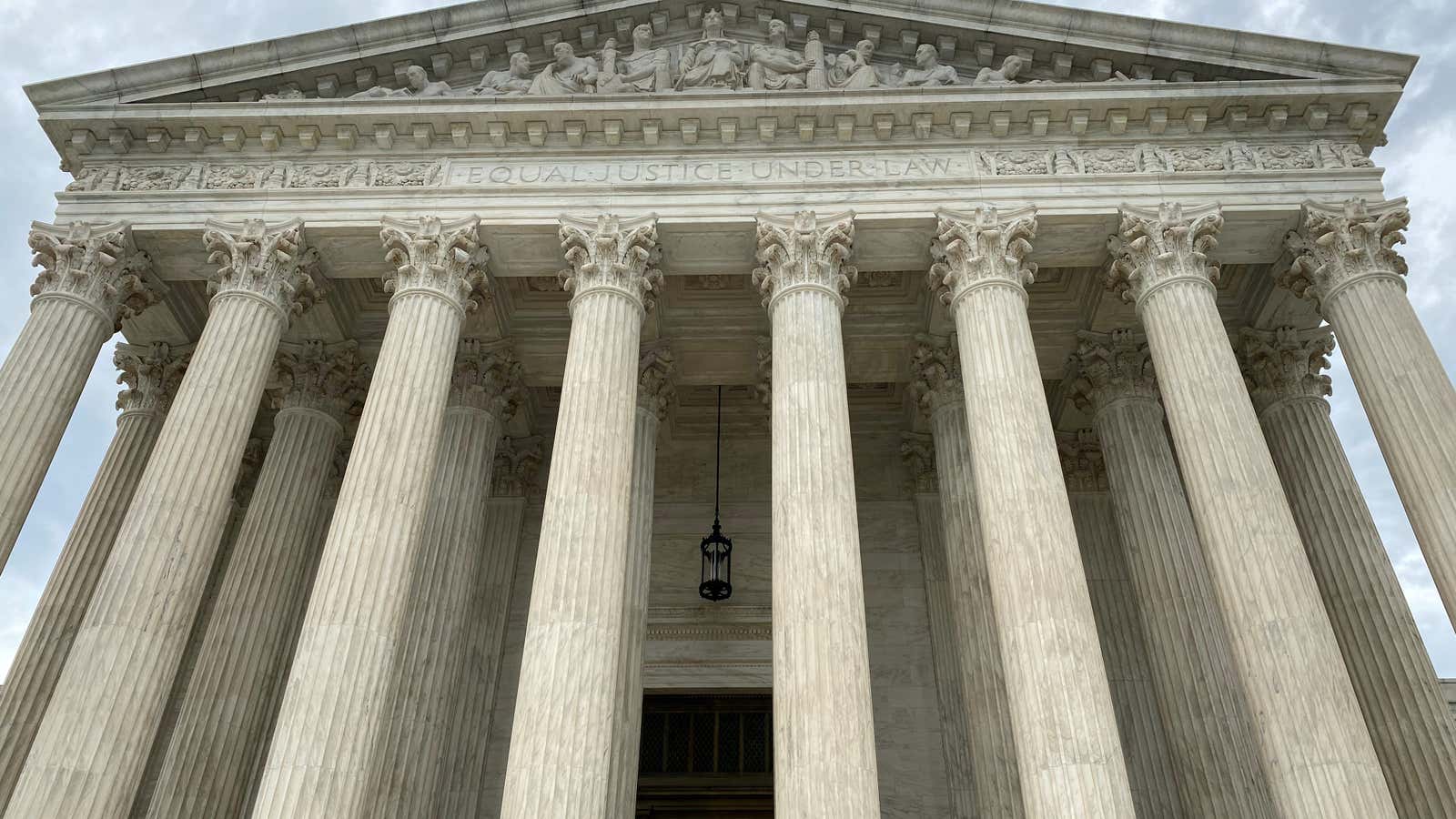And then there were eight. US Supreme Court justice Ruth Bader Ginsburg died on Friday, leaving the nation’s top court down a member. At least for now—Republican party leaders including president Donald Trump and Senate majority leader Mitch McConnell, have made clear their plans to move quickly to fill the vacant seat.
If they do fill the seat—either before the November election, or between November and the inauguration in January—it would be with a conservative judge, leaving the Supreme Court with a 6-3 conservative majority. That could have implications for the legal system at large, and for the rights of individual Americans.
Between Oct 5. and Dec 9. alone, the Supreme Court is scheduled to hear 28 arguments. It’s not clear yet whether any of those arguments will be delayed because of Ginsburg’s death, though in the past the court has been able to continue with at least six judges and contingencies for ties. Here are some of the issues the court’s decisions may affect:
Police and use of force
Case: Torres v. Madrid
Scheduled argument date: Wednesday, Oct. 14
Summary: In New Mexico in 2014, Roxanne Torres was sitting in the driver’s seat of a car as she was going through withdrawal from methamphetamine. Police approached the car, surprising her; Torres believed she was being carjacked and tried to drive away. The officers, fearing injury, fired at Torres. In 2016, Torres filed a complaint saying the officers had used excessive force. The question that hangs in the court’s decision is whether law enforcement officers who shoot at a suspect violate the Fourth Amendment of the US Constitution, which prohibits unlawful search and seizure.
Immigration
Case: Pereida v. Barr, attorney general (pdf)
Scheduled argument date: Wednesday, Oct. 14
Summary: Clemente Avelino Pereida left his native Mexico for the US about 25 years ago. He was convicted of “attempted criminal impersonation” for using a social security card, which is a misdemeanor. Now the US government is trying to deport him. Pereida has petitioned against deportation on the grounds that his eight-year-old son, a US citizen, would suffer hardship, but his misdemeanor conviction may invalidate that request. The court must decide “whether a criminal conviction bars a noncitizen from applying for relief from removal” when it’s not clear that this particular conviction is one listed in the Immigration and Nationality Act.
LGBTQ+ rights
Case: Fulton v. City of Philadelphia (pdf)
Scheduled argument date: Wednesday, Nov. 4
Summary: Philadelphia had a contract with a nonprofit called Catholic Social Services (CSS) to find foster families for children in need. In 2018, the city learned that CSS had been rejecting same-sex couples applying to be foster parents on religious grounds. Philadelphia ended its relationship with CSS, stating that CSS’s practices were discriminatory. The case raises several questions, among them whether CSS’s practices were discriminatory, and whether Philadelphia violated First Amendment rights by making secular statements a condition of the organization’s participation in the foster program.
Healthcare
Case: California v. Texas (pdf)
Scheduled argument date: Tuesday, Nov. 10
Summary: When the Affordable Care Act came into law in 2010, it included a requirement that each individual must have health insurance or face a financial penalty. In a 2012 challenge to this provision, the Supreme Court upheld it by considering the penalty to be a tax; in 2017, Congress reduced this tax to zero. Texas and several other states are now suing the federal government on the grounds that a tax cannot be zero, but in effect they are challenging the existence of the individual mandate.
Digital privacy
Case: Facebook, Inc. v Duguid (pdf)
Scheduled argument date: Tuesday, Dec. 8
Summary: Noah Duguid was not a Facebook user. But that allegedly did not stop the company from sending him a number of text messages about logging into his account. Because he never consented to use of his phone number, Duguid alleges that this was a violation of the Telephone Consumer Protection Act of 1991.
